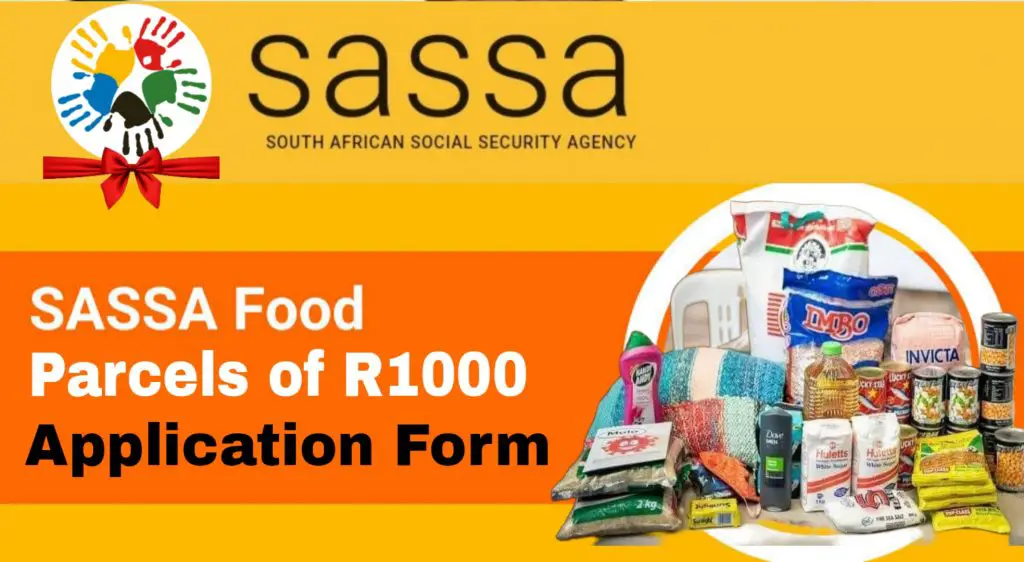Caring Through Crisis: SASSA’s Lifeline of Free Food Parcels in South Africa, Thousands of Food Parcels Currently Available😊

To claim a food parcel through SASSA’s initiative in South Africa, individuals must be over the age of 18. This eligibility criterion ensures that the support reaches adults who are responsible for their households, aligning with the program’s goal to provide essential sustenance to those most in need during challenging economic times.
In recent years, the global rise in food prices has created significant challenges for households worldwide, and South Africa is no exception. The impact of these price increases has been particularly harsh on vulnerable communities, exacerbating food insecurity and deepening socio-economic inequalities. Recognizing the critical need to support its most vulnerable citizens, the South African government, through the South African Social Security Agency (SASSA), launched the Food Parcel program in 2021. This initiative aims to provide essential food items to households facing severe economic hardships.
The Food Parcel program was introduced as a response to the escalating food prices that have burdened families across the nation. Basic food staples such as maize, rice, tinned foods, oil, cold meats, and other non-perishable items are included in these parcels. These items are carefully selected to provide nutritional support and sustenance to families struggling to make ends meet.
The eligibility criteria for receiving these food parcels are designed to ensure that assistance reaches those who need it most. Priority is given to households with a combined monthly income below a certain threshold, which varies based on family size and circumstances. Additionally, households with children, disabled members, elderly individuals, or those facing temporary financial hardships are given preference. Certain recipients of SASSA social grants may also automatically qualify for the Food Parcel program, as these individuals are already identified as being in need of state support.

The distribution of food parcels is managed by SASSA in collaboration with local government entities and community organizations. This partnership ensures that the parcels are distributed efficiently and effectively to areas identified as having high levels of food insecurity. Local knowledge and networks play a crucial role in identifying eligible recipients and ensuring that the parcels reach those who are most in need.
Each food parcel distributed through the program is valued between R750 to R1000, reflecting a thoughtful selection of essential items that can sustain a household for a period. The inclusion of non-perishable goods ensures that families have access to food items that can be stored for longer periods, thereby providing ongoing relief from the challenges posed by fluctuating food prices.
The impact of the Food Parcel program extends beyond immediate relief from hunger. By alleviating the financial strain associated with purchasing food, the program contributes to the overall well-being of households. Families can redirect their limited financial resources towards other essential needs, such as healthcare, education, and housing, thereby fostering greater stability and resilience within communities.
Moreover, the program promotes social inclusion by addressing the specific needs of vulnerable groups, including children, the elderly, and individuals with disabilities. By prioritizing these groups, SASSA ensures that marginalized communities receive targeted support that acknowledges and responds to their unique challenges.
While the Food Parcel program has been instrumental in providing relief to vulnerable households, it is not without its challenges. The sustainability of such initiatives relies heavily on stable funding and logistical coordination. Ensuring that parcels reach remote and underserved communities can be particularly challenging due to infrastructure limitations and geographical barriers.
Furthermore, the program’s success hinges on accurate targeting and assessment of need. Regular reviews of eligibility criteria and distribution processes are essential to ensure that resources are allocated equitably and efficiently. Continuous monitoring and evaluation allow for adjustments that enhance the program’s effectiveness and responsiveness to evolving socio-economic conditions.

Looking ahead, there is a pressing need to explore sustainable solutions that address the root causes of food insecurity in South Africa. Long-term strategies may include investments in agriculture, social protection programs, and initiatives that empower communities to achieve food self-sufficiency. Collaborative efforts between government agencies, civil society organizations, and the private sector are crucial in developing comprehensive approaches that promote food security and economic resilience.
In conclusion, the SASSA Food Parcel program represents a critical intervention in response to the food insecurity exacerbated by rising prices in South Africa. By providing essential food items to vulnerable households, the program not only meets immediate nutritional needs but also supports broader social and economic development goals. As the nation continues to navigate the challenges posed by food insecurity, sustained commitment to effective policies and programs will be essential in building a more inclusive and resilient society.
Through targeted support and collaborative action, South Africa can move closer to achieving food security for all its citizens, ensuring that no one is left behind in the quest for a better quality of life.
Start Your Sassa Food Parcel Application HERE!